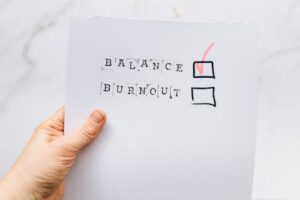Sexual anxiety is something many women experience, yet it remains a subject often shrouded in silence. While there is much attention paid to sexual health and performance issues in men, the struggles women face are sometimes overlooked. It’s important to open up about this topic, not only to validate those who may feel isolated in their experiences but also to provide support and solutions. Sexual anxiety performance in women is real, and it can significantly affect a woman’s sense of self, her relationships, and her overall well-being.
Table of Contents
- What is Sexual Anxiety in Women?
- Common Causes of Sexual Anxiety
- How Sexual Anxiety Affects Performance
- The Impact on Relationships
- How to Manage and Overcome Sexual Anxiety
- When to Seek Professional Help
- Breaking the Stigma: Supporting Women Through Their Struggles
1:What is Sexual Anxiety in Women?
Sexual anxiety refers to the feelings of nervousness, fear, or self-doubt a woman may experience before, during, or after sexual activity. This type of anxiety can manifest in physical symptoms like a racing heart, sweating, or tightness in the chest, and it can also lead to psychological effects, such as worry about performance or body image. It’s important to remember that sexual anxiety is not limited to any particular age or stage of life—women of all backgrounds can experience it.
2:Common Causes of Sexual Anxiety
Several factors can contribute to sexual anxiety in women. These may be physical, emotional, or psychological in nature. Here are some common causes:
- Body Image Issues: Many women feel self-conscious about their appearance, which can affect their sexual confidence. Worries about how they look during intimacy can lead to anxiety.
- Past Trauma or Negative Experiences: A history of sexual abuse, trauma, or painful sexual experiences can create deep-seated anxiety during intimate moments.
- Fear of Judgment or Rejection: Concerns about being judged by a partner for their desires, performance, or even how they look can create immense anxiety.
- Performance Pressure: Women may feel pressured to meet certain expectations or to “perform” perfectly, leading to fears of failure or inadequacy.
- Hormonal Changes: Fluctuations in hormones, especially during menstruation, pregnancy, or menopause, can lead to changes in libido and arousal, which can also trigger anxiety.
3:How Sexual Anxiety Affects Performance
Sexual anxiety can disrupt a woman’s ability to fully engage in and enjoy sexual experiences. Anxiety can lead to difficulties in achieving arousal or orgasm, or even result in the avoidance of sex altogether. The constant worry about whether or not she’s performing well can make it difficult for a woman to connect with her partner or focus on the experience. This performance anxiety often becomes a cycle: the more she worries about it, the more difficult it becomes to relax and enjoy sex.
4:The Impact on Relationships
Sexual anxiety doesn’t just affect the woman experiencing it—it can have a profound impact on her relationship as well. If a woman avoids intimacy due to anxiety, it can create distance and lead to feelings of frustration, rejection, or confusion in her partner. Couples may struggle with communication around the issue, with the woman feeling ashamed or embarrassed and the partner feeling helpless or misunderstood.
Furthermore, constant performance anxiety can diminish emotional intimacy. Intimacy is not just physical—it’s about connecting on a deeper level. When anxiety gets in the way, the emotional bond that is vital to a relationship may suffer.
5:How to Manage and Overcome Sexual Anxiety
While it may seem overwhelming, sexual anxiety is something that can be managed. Here are some strategies for coping and overcoming sexual anxiety:
- Open Communication: Talk openly with your partner about your feelings. Communication is key to alleviating any misunderstandings and creating a safe space for vulnerability. A compassionate and understanding partner can make a world of difference in easing anxiety.
- Self-Compassion: Instead of criticizing yourself for experiencing anxiety, practice self-compassion. Be kind to yourself and recognize that these feelings are valid and common. Treat yourself with the same kindness you would offer a close friend in a similar situation.
- Mindfulness and Relaxation Techniques: Incorporating mindfulness practices like deep breathing or meditation can help reduce overall anxiety. When you’re able to focus on the present moment rather than worrying about performance, you can feel more relaxed during intimate moments.
- Therapy: Speaking to a therapist, especially one who specializes in sexual health, can help address deeper-rooted issues, such as trauma, body image concerns, or negative beliefs about sex.
- Education and Resources: Sometimes, anxiety comes from not understanding our bodies or sexuality. Educating yourself about sexual health and arousal can help reduce fears or misconceptions. Books, workshops, or online resources can be helpful.
- Physical Self-Care: Exercise and nutrition can play a crucial role in reducing anxiety. A healthy body can help improve your overall mental state and sexual confidence. Plus, a focus on self-care and body positivity can combat any body image issues contributing to anxiety.
6:When to Seek Professional Help
If anxiety persists and begins to interfere significantly with your daily life or relationships, it may be time to seek professional help. A therapist or counselor who specializes in sexual health can help you navigate deeper emotional issues or relationship dynamics. In some cases, a healthcare provider may suggest treatments for underlying conditions that may be contributing to anxiety, such as hormonal imbalances or chronic stress.
7:Breaking the Stigma: Supporting Women Through Their Struggles
Sexual anxiety is often not openly discussed, which contributes to the stigma surrounding it. Women may feel embarrassed or alone in their struggles, but it’s important to remember that these feelings are not uncommon, and seeking help is a sign of strength, not weakness. By breaking the silence and starting conversations about sexual anxiety, we can create a more supportive environment for women to address their concerns and take steps toward healing.

Conclusion
Sexual anxiety performance in women is a real and complex issue that deserves more attention. By acknowledging its existence, understanding the underlying causes, and providing support, we can empower women to overcome their struggles. Whether through communication, therapy, or self-compassion, there are steps women can take to reclaim their sexual confidence and enjoy healthy, fulfilling relationships.
If you or someone you know is experiencing sexual anxiety, remember that you’re not alone—and that help is available. Let’s continue to break down the stigma and create a world where women feel safe and supported in exploring and understanding their sexuality.








